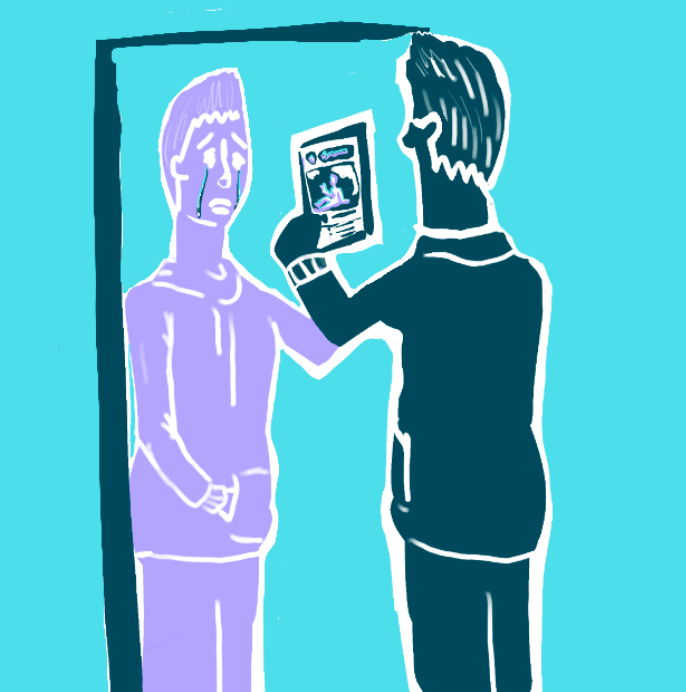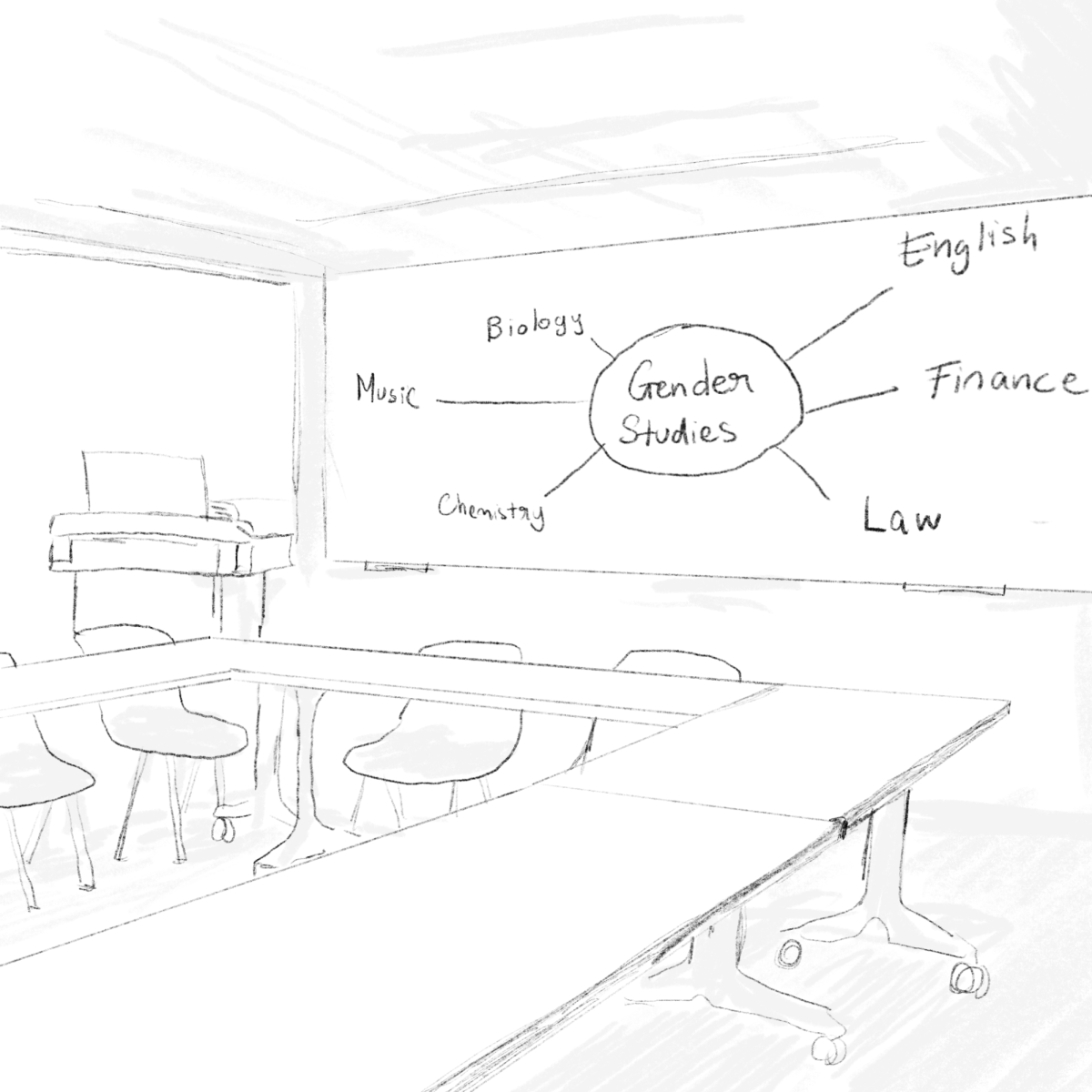At an age where all of us are figuring out who we want to be, we also face the dilemma of how we want to be perceived by other people. There are countless voices telling us what normal looks like, what it means to be likable and how beauty is defined. These opinions come from a wide range of sources — social media, family and friends — even ourselves. With all this input, feeling comfortable in your body and mind can be incredibly difficult.
More often than not, a quick scroll through your Instagram or TikTok feed will include posts from creators that look just plain unrealistic, people with hourglass figures and teeny tiny waists, overly plump lips and shrunken noses, even excessively defined musculature. Whether it be through the use of filters, Photoshop or undisclosed cosmetic surgery, content creators and celebrities alike perpetuate an unnaturally high standard of beauty.
Body and beauty trends make it far too easy to compare yourself with those around you or with accounts you follow online, making it seem like one specific feature is the key to individual beauty. If you happen to not conform to the standards set by the feature in focus, insecurities may arise. Because trends are so short-lived, there is always a new detail of your body that others can tell you is wrong or shameful.
Obviously, trying to keep up with every minor fad is extremely damaging to our relationships with our bodies. Feeling pressured to alter your appearance builds a resentment of your natural features and gives more power to your worst critic: yourself. Personal flaws are already scrutinized to an astonishing degree, even if they’re barely perceived by other people. Non-conformity to societal standards and trends further exacerbate self-consciousness regarding appearance, diminishing how we feel about ourselves.
Fully expressing ourselves is vital to our mental health, but when we’re too caught up in the unending societal criticism of our bodies, we prioritize conformity over comfort. We have been conditioned to present the best version of ourselves in any way we can, which often takes place on social media platforms. The average American checks their phone about 144 times a day, which entails seeing a lot of yourself and other people. In doing so, we feed into the obsession with body image and personal appearance, again to the detriment of our mental well-being.
Such an intense focus on body and beauty standards takes away from the possibilities of self-exploration, as it encourages people to adhere to “safe” forms of expression that align with societal expectations. For those of us who are at a crucial developmental point, we’re caught between wanting to be at home in our bodies and also not feeling like we’re enough.
Accepting your body is difficult enough without people telling you how to feel about it. It’s a journey that spans the entirety of our lives, as we are constantly changing and aging. Trends will age with us, and while there will always be those that challenge our characteristics, remember that all of you, your mind and your body, is deserving of admiration and love. This mindset matters most within you as we navigate a world dominated by fleeting fads and the pressures of conformity. Ground yourself in your worthiness to exist and express yourself unapologetically.








